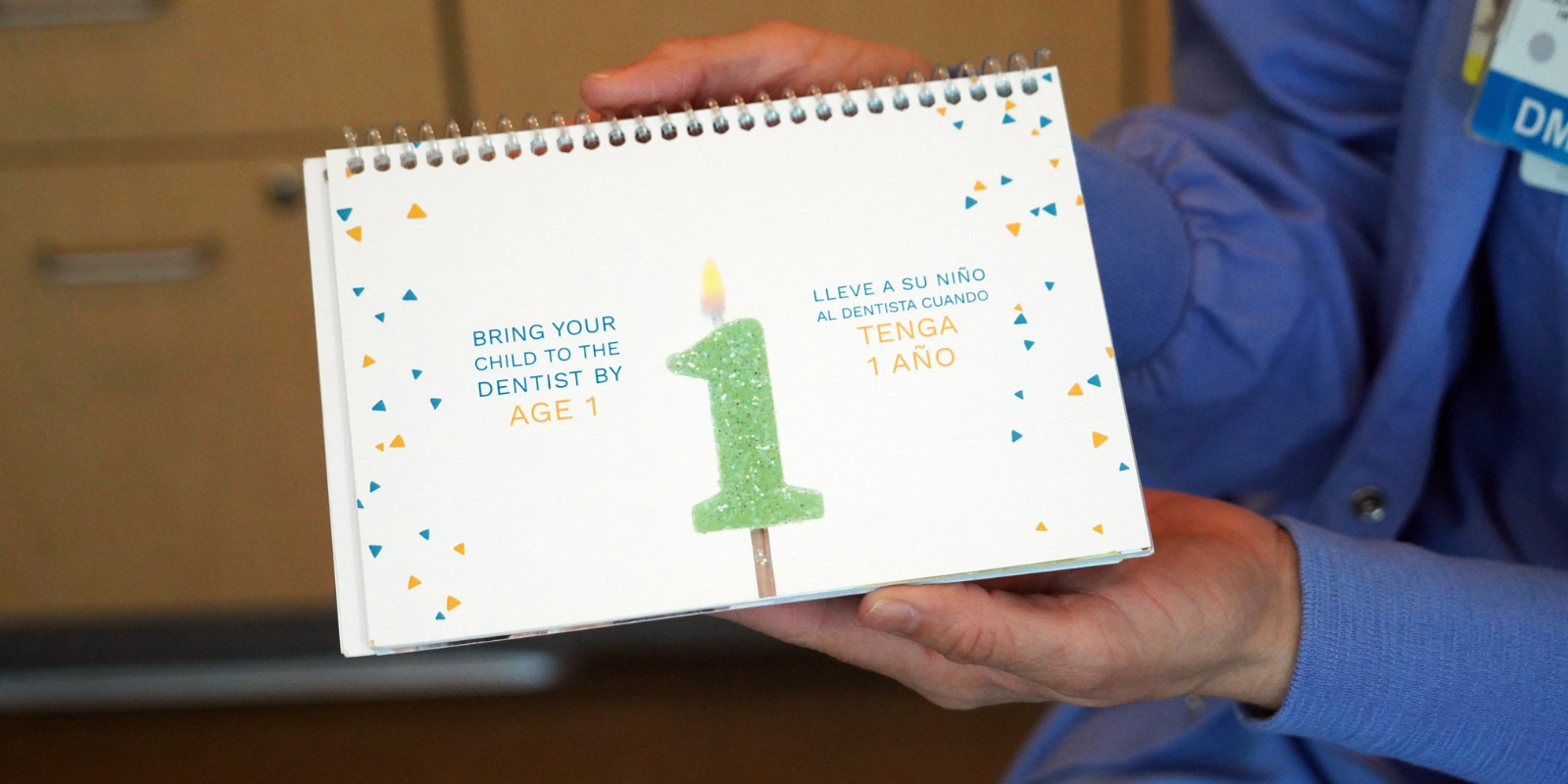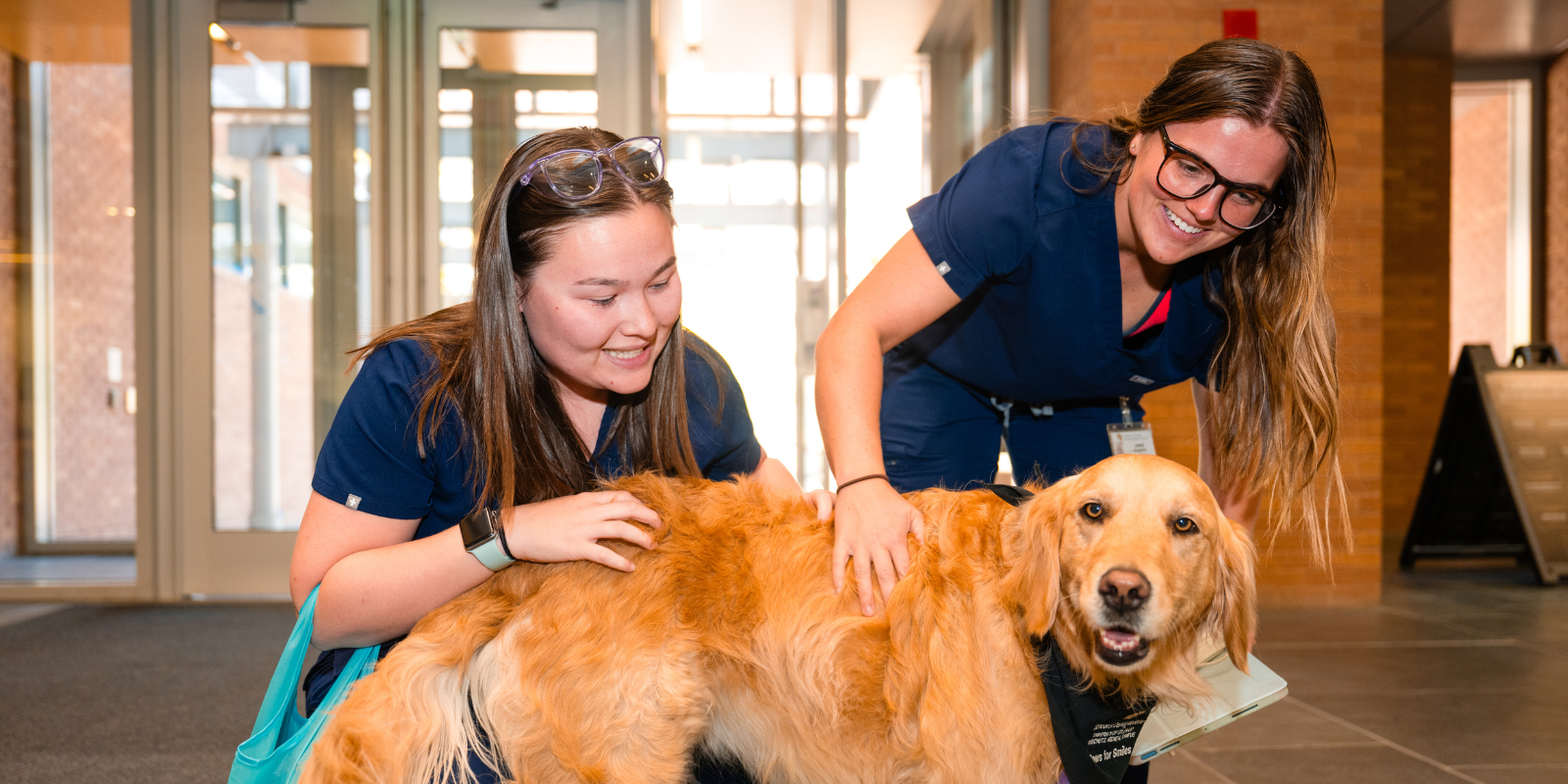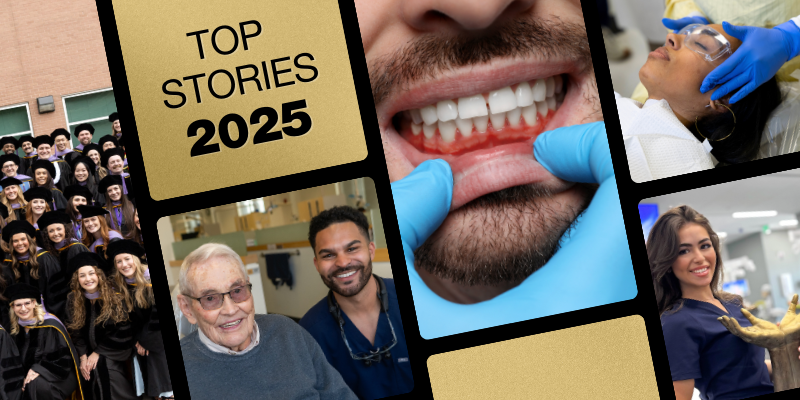Dijana Elmejdoubi’s path has taken her from the Olympics to dental school and a career as an endodontist. But when she ran the 400-meter dash for Bosnia-Herzegovina in the 2000 Olympics in Sydney, Australia, there was so much she didn’t know about caring for her mouth.

Dijana Elmejdoubi, DDS '22, a graduate of the CU School of Dental Medicine and former Olympian, is now a practicing endodontist in Colorado Springs. |
“I had never heard of flossing,” said Elmejdoubi, who received her dental degree from the University of Colorado School of Dental Medicine (CU SDM) in 2022.
Now a practicing endodontist in Colorado Springs, Elmejdoubi said the Olympics can be an opportunity for athletes from many countries to not only compete, but to take care of their health—especially, their dental health.
The health of elite athletes’ teeth, gums and mouths “can affect our performance in many ways,” she said. “For us, even a hundredth of a second is so important. We have to be 100 percent when we perform in the Olympics.”
From clinic to full-fledged department
It’s a need the International Olympic Committee (IOC) is working to address. This year, the Paris Olympics will feature a first-ever Oral Health Department. The Olympics has had a dental clinic of some kind for a century, but the new department will provide screenings, emergency care and preventative treatment tailored especially to athletes and their performance needs, the IOC said in an online announcement.
It’s yet another reflection of the growing understanding that “the mouth is the window to the rest of the body,” said Eric Mediavilla, DDS ’00, FAGD, associate professor and associate dean of admission, student and alumni affairs at CU SDM.
“There is very substantial research that demonstrates there is a connection between good oral health and systemic health,” he said. “The more people that have access to that information, hopefully we can curtail some of these systemic diseases, or at least help manage them better with good oral healthcare.”
Cavities and periodontitis (a gum disease that damages the soft tissue around the teeth), left untreated, can cause heart problems as well as joint and muscle injuries as a consequence of peripheral infections, Mediavilla said. This can look like muscle fatigue, joint inflammation, and joint pain—all of which, he noted, in an echo of Elmejdoubi, can result in the difference between “a gold medal versus not medaling at all.”
An Olympic dental department is essential because athletes run the risk of traumatic events to their jaws and teeth. “You think about what the gymnasts do on the beam and the high bar,” Mediavilla said. “There's plenty of potential for them to face plant and cause all kinds of damage to their dentition.”
In many sports, athletes will wear mouthguards to protect their teeth, and the Oral Health Department will provide replacement services to anyone who loses theirs at the Games. But in the past, the dental clinic has also been invaluable for treatment of localized infections like cavities, chronic issues like periodontitis, and preventative care.
Dental issues common among elite athletes
Olympians may be young, but many arrive at the competition with significant dental needs. A study of athletes who competed at the 2012 London Olympics found that tooth erosion, gum disease and cavities were common.
Nearly half of the athletes said they were “bothered” by their oral health. One in three said it affected their quality of life and one in five said it impacted their training and performance.
"Our data and other studies suggest that, for a similar age profile, the oral health of athletes is poor. It's quite striking," lead researcher Ian Needleman, a professor of periodontology at University College, London, told the BBC.
Intense training stressed their immune systems, while leaving them little time to attend to or even think about their teeth, Needleman said.
.png?width=800&height=418&name=Athletes%20Oral%20Health%20Infographic%20(2).png)
Too many energy drinks, too little access
One reason elite athletes are prone to cavities is “the energy drinks they guzzle between workouts,” Mediavilla said.
The drinks are high in both sugar and acidity content—two red flags for developing cavities. To prevent issues, athletes “have to be careful with how they consume the beverages,” he said. “They should follow an energy drink with water so that they're not constantly bathing their mouths in acid and sugar, which is basically the energy input for the bacteria that causes cavities.”
Money and access can also be a barrier.
“I think it's fantastic they [IOC] provide care there for the athletes,” he said. “Many don't have access to care. Others may have access, but they don't have the money.”
He saw this firsthand—before he became a dentist, Mediavilla played baseball in the minor leagues. He vividly recalls how a number of his teammates lost teeth because they couldn’t afford dental treatment. One friend, for instance, needed a root canal but couldn’t pay for it. Instead, he had his front tooth removed. “It makes me sad that he had to go through that as a 21-year-old,” he said.
“A lot of people have the misconception that Olympic athletes don't have any financial worries, but that’s not true for all of them,” he said. “The female gymnastics team probably has a very different sponsorship than the mixed doubles badminton team.”
And many athletes come from countries that lack the robust dental infrastructure we have in the United States. “For example, many dentists in the U.S. offer panoramic imaging,” Elmejdoubi said. In Bosnia, it’s different. “For my parents to get panoramic imaging, they have to wait for months for an appointment at a hospital.”
It may seem like temporary access to care, even at a world-class dental clinic, wouldn’t be enough to counter years of neglect and insufficient access, Mediavilla said. But even intermittent, short-term care can make a difference.
“At these types of events, where they maybe can get in there and kind of debride the teeth of those bacteria, they're creating the opportunity for the patient to slow or halt the process of a chronic dental disease, like periodontitis,” he said. Some patients may need further treatment back in their home countries, but at the very least, the Olympic Oral Health Department can “get them in a position where they can begin to take better care of their oral health.”



